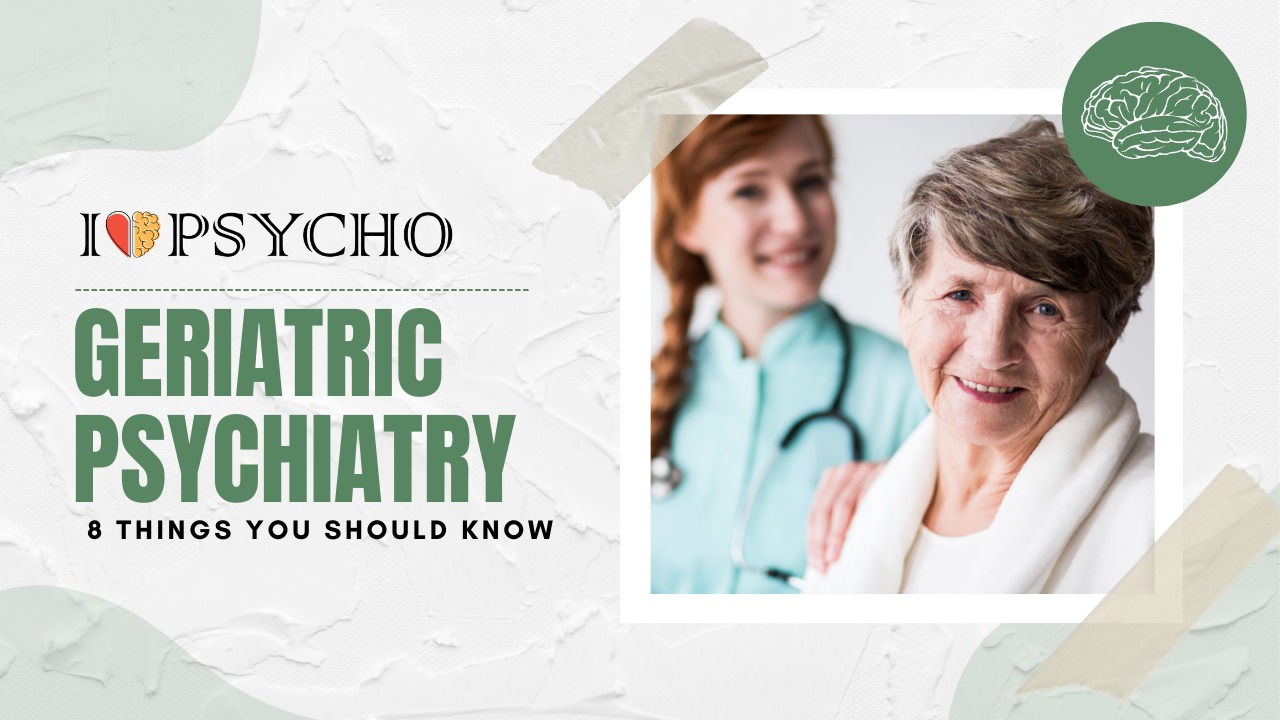Geriatric psychology is a branch of psychology that focuses on the mental and physical well-being of people in their later years. These specialized psychologists research a wide range of psychological abilities that deteriorate as people age, including memory, learning, and coordination. This branch of psychology focuses on assisting people in coping with aging and the loss of abilities such as coordination and memory. The rise in interest in the effects of aging on mental health is credited with the development of geriatric psychology.
In a variety of workplace settings, geriatric psychologists conduct the diagnosis, study, and treatment of certain mental illnesses with elderly clients. Loneliness in old age, depression, dementia, Alzheimer’s disease, vascular dementia, and Parkinson’s disease are all common areas of practice. The study of mental functions as people age is known as geriatric psychology. The psychologist’s goal is to see how an elderly person’s brain’s neurological and physiological processes influence their daily behaviors. A geriatric psychologist helps people with declining brain functions live better lives.
Role of Geriatric Psychologist
A geriatric psychologist is a psychologist who specializes in working with the elderly. This treatment could be for mental health issues or to help people understand and cope with the aging process. To work as a geriatric psychologist, you’ll need a doctorate in psychology with a focus on adult development and aging.

Geriatric psychologists work in hospitals, mental health clinics, rehab centers, nursing homes, and research centers after earning their degree. Geriatric psychologists spend the majority of their days dealing with mental health issues in senior citizens and providing counseling to those who require it.
They can also help with diagnosing age-related issues. Clinical interviews, neuropsychological tests, and behavioral observations will all be conducted by geriatric psychologists to check for mental health issues.
History of Geriatric Psychology
With a surge in interest in mental health and the effects of aging, geriatric psychology was born in 1978. The number of aging adults in the United States has been steadily increasing. A small group of 11 people got together to discuss late-life mental health needs as well as the field of geriatrics.

The American Association of Geriatric Psychology was founded as a result of this meeting (AAGP). With the passage of time, the small group has grown into a large organization dedicated to the well-being of the aging population.
The Increasing Demand for Psychological Services for Seniors
As the population of the elderly grows, so will the demand for mental health practitioners with experience in caring for them. As large cohorts of middle-aged people- who are more accepting of mental health services than the current generation of older people- age, demand for mental health services is expected to rise.
According to studies, nearly two-thirds of older adults with mental illnesses do not receive the care they require.

This issue is particularly acute in rural and underserved populations, such as the poor and certain ethnic and racial groups. According to studies, the majority of older adults want to be treated if they become depressed.
When given the option of choosing between psychological services and antidepressant medication, older adults frequently choose psychological services. Older adults report that receiving mental health services from qualified mental health professionals makes them feel safe.
Common Areas of Practice in Geriatric Psychology
Loneliness in Elderly People
Loneliness is an emotional reaction to being socially isolated. It usually entails anxious feelings as a result of a lack of social connection or communication with others.

Loneliness has been shown to have negative effects on biological, cognitive, and immune functioning in studies. It affects people of all ages, from children to the senior citizens.
Dementia in Geriatric Psychology
Dementia is a set of symptoms that refers to a loss of mental ability rather than a disease. A person’s behavior, as well as their memory and thought processes, can be affected by a variety of symptoms.
It is difficult to carry out day-to-day activities due to these impairments. They can also lead to emotional issues and a lack of motivation to live.

Because dementia is not a conscious disorder, a person’s conscious is usually unaffected. Geriatric psychologists help people with dementia by assisting with diagnosis. Various cognitive tests and assessments are used to accomplish this. They’ll also look into dementia research and treatment options.
Alzheimer’s Disease
Dementia’s most common form is Alzheimer’s disease. It accounts for 60-80% of all cases. Alzheimer’s disease has mild symptoms at first, but as time goes on, the symptoms become more severe. Having trouble recalling recent events is a common early symptom.

As the disease progresses, many symptoms appear. Speech difficulties, disorientation, mood problems, a lack of motivation, and other symptoms are among them. A geriatric psychologist’s role in Alzheimer’s disease is similar to that of dementia in that it involves assessment, treatment, and research.
Depression
Depression in the elderly population can have serious consequences, making it a significant public health issue and research topic.

In comparison to younger adults, older adults are less likely to endorse affective symptoms and are more likely to display cognitive changes, somatic symptoms, and loss of interest when dealing with this debilitating condition. It’s linked to “morbidity, increased risk of suicide, decreased physical, cognitive, and social functioning, and greater self-neglect,” all of which are linked to a higher risk of death.
Parkinson’s Disease
Parkinson’s disease is a movement disorder characterized by tremors, sluggishness, stiffness, and poor balance. It primarily affects the motor system, which supports movement-related motor functions.

As the disease progresses, it is common for people to develop dementia that is linked to Parkinson’s disease. Sensory issues can also be a problem for those who suffer from this disease. For those with Parkinson’s disease, a geriatric psychologist’s role would be to help the person diagnosed deal with the stress that comes with the disease.
Further Reading:









